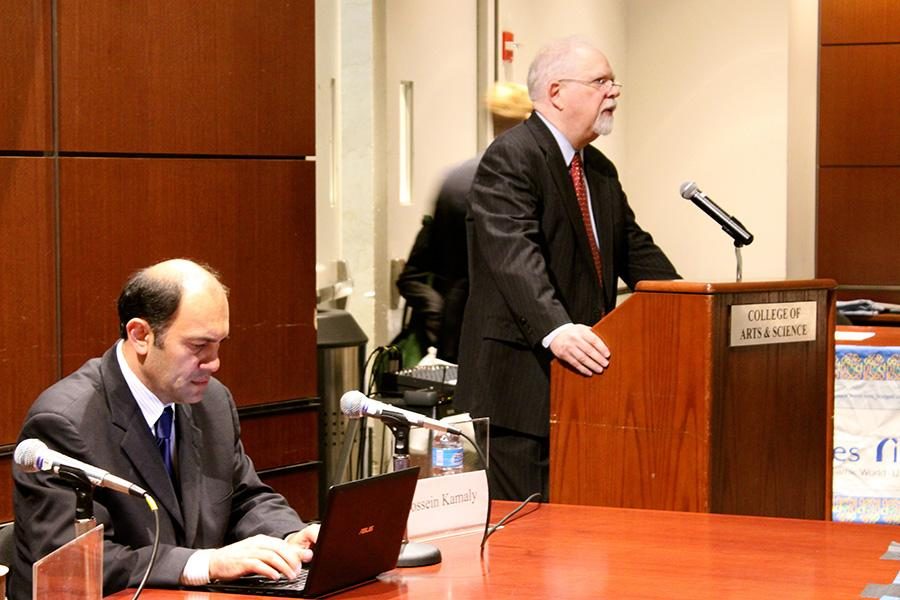NYU, Barnard and Columbia join in Middle East panel
September 17, 2014
In light of the recent airstrikes launched by the United States on the Islamic State of Iraq and the Levant, NYU hosted a panel discussion on the growing divide between Sunni and Shia worlds on Tuesday with Barnard College professor Hossein Kamaly and Columbia professor Richard Bulliet. The panel took place at Hemmerdinger Hall.
Kamaly discussed the historical divide between the two sects of Islam and contested the idea that historical divides are the cause of the acts currently being carried out in the Middle East.
“Shias and Sunnis have even been married,” Kamaly said. “These problems didn’t exist. They have developed due to political and financial reasons. It’s a damned ideology of killing people.”
Bulliet believes people working in the U.S. government need to be educated on the conflict between the two groups.
“People who work full-time in the government don’t have much time to read,” Bulliet said. “I believe that there is a significant number of people in the administration who don’t know the difference between Sunnis and Shias.”
During the question and answer session, members of the audience asked the speakers about the role of Saudi Arabia and the United States in the growth of ISIS as an organization.
“I think, in a lot of ways, the ISIS mess has been created by the Obama administration because they have ignored it,” Qasim Shah, a New York-based executive who attended the event said. “They have systematically allowed the funding to go in to support ISIS from Saudis.”
Regarding the recent air attacks by the United States, Bulliet said the current situation shows a shift in U.S. policy in the region.
“It’s a very difficult call. I am not going to try to second guess them,” Bulliet said. “The policy of doing nothing is not a reasonable alternative. We are doing something different this time. I think occupying Iraq was a mistake. We are not doing that.”
Kamaly however, questioned the effectiveness of the airstrikes, saying this type of policy has failed before.
“Has it helped? Did it help in Libya? Muammar Gaddafi is gone and Libya is not a country anymore,” Kamaly said. “Couldn’t diplomacy work with Gaddafi? I don’t know. I am always in favor of not killing people, but you know it’s a naive position.”
Email Arsh at [email protected].
























































































































































